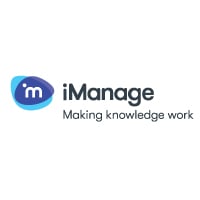

Head of legal | AGC







Masayuki Matsuyama
Head of legal | AGC
Team Size: Over 50 globally
What are the most significant cases, projects and transactions that you and your legal team have recently been involved in?
One of the most significant projects our legal team has recently been involved in is managing the company’s response to the Ukraine crisis. This has encompassed a wide range of complex legal work, including risk management and divestment. Our most critical task was implementing a comprehensive compliance strategy in response to sanctions imposed by the US, EU and other authorities. We promptly suspended the export of products, equipment, and related services to Russia that could be considered in violation of these sanctions. Additionally, our team conducted enhanced due diligence to ensure that no business was conducted with sanctioned parties or entities controlled by such parties, even outside Russia. This project also involved the divestment of our Russian subsidiaries. Our legal team oversaw the selection of buyers, reviewed cross-border payment arrangements, and successfully completed the transaction while maintaining full compliance with applicable sanctions and adhering to the processes and conditions required under Russian law.
How do you approach managing legal aspects during periods of instability or crisis to ensure the organisation’s resilience?
During periods of instability or crisis, we focus on proactive risk management, clear communication, and agile decision-making to ensure organisational resilience. We closely monitor regulatory and geopolitical developments to identify emerging legal risks and maintain strong relationships with external counsel for timely guidance. If necessary, we recommend that top management establish a cross-functional team (for example, legal, corporate planning, finance, public relations, business units, and other relevant departments) to assess risks and develop comprehensive response strategies. After a crisis, we conduct reviews to capture lessons learned and further strengthen the company’s resilience. By embedding legal risk management into the company’s crisis response, we help safeguard the company’s continuity, reputation, and long-term success.
Have you had any experiences during your career as a lawyer that stand out as particularly unique or interesting?
One of the most unique and interesting experiences in my career was participating in a patent litigation in Thailand. The witness examination process was incredibly thorough and time-consuming. For example, one Japanese expert witness gave his testimony for two consecutive full days, from morning to evening, with the assistance of two interpreters. During the examination, questions even delved into his university major and the topic of his graduation thesis. This experience made a strong impressing on me regarding how court procedures can differ from country to country.
Given the current geopolitical shifts and growing uncertainties around international free trade, has your company’s risk profile evolved, and are you taking measures to address these challenges?
The current geopolitical shifts and increasing uncertainty surrounding international free trade have significantly heightened risks in trade control compliance. In response, we have established a structured and collaborative framework across our legal teams in Japan/Asia, Europe, and North and South America. This framework enables us to proactively address rapidly changing trade control regulations and sanctions.
Based on your experiences in the past year, are there any trends in the legal or business world that you are keeping an eye on that you think other in-house lawyers should be mindful of?
One of the key trends we have observed over the past year is the rapid advancement of legal technology, including generative AI tools. These innovations have become indispensable for increasing the efficiency and sophistication of legal work. However, they also introduce new risk factors, such as data privacy concerns and ethical considerations. It is also necessary to pay attention to whether excessive reliance on legal tech might hinder the development of team members. I believe in-house lawyers should leverage these tools with due caution.